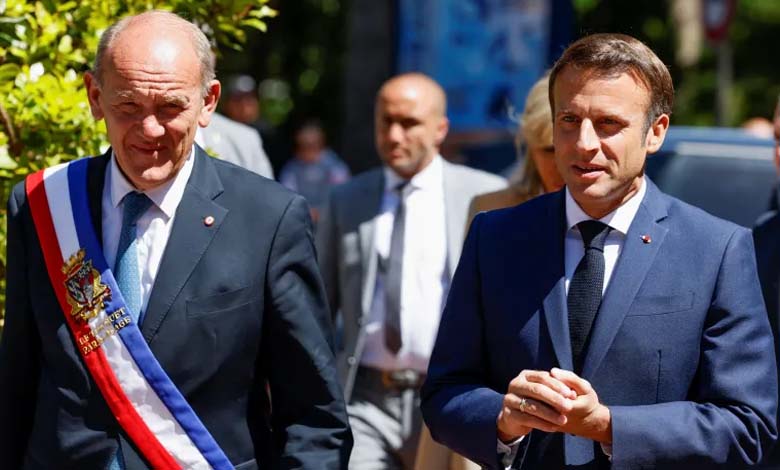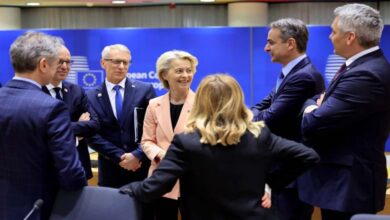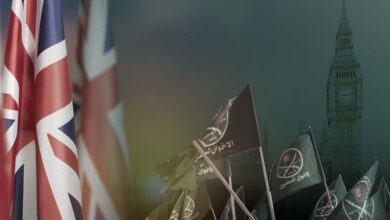Associated Press: The French Elections of 2024, a Battle for the Future of France and Europe

The American agency “Associated Press,” by Sylvie Corbet, confirmed that French voters are heading to the polls this Sunday, at an exceptional moment in their political history, for the first round of early parliamentary elections that could lead to the emergence of the country’s first far-right government since the Nazi regime during World War II, or no majority party at all.
Early Elections
French President Emmanuel Macron called for early elections after his centrist alliance was defeated in the European elections earlier this month. Voters will choose deputies for the National Assembly in two rounds on June 30 and July 7.
The report adds: “The outcome of the vote, after the second round on July 7 and a hasty campaign, remains largely uncertain with three main political blocs competing: the far-right National Rally, President Emmanuel Macron‘s centrist alliance, and the New Ecological and Social People’s Union (NUPES), which includes the center-left, greens, and far-left forces.”
The American agency notes that France banned far-right and Islamist extremist groups before these controversial high-stakes legislative elections, where a Jewish candidate fights against hatred and division, while President Macron weakens both domestically and internationally after these early elections that give momentum to the far-right.
How the French Elections Work
The French system is complex and does not align with national party support. Legislators are elected by district. A parliamentary candidate needs more than 50% of the votes to be directly elected on Sunday.
If that fails, the top two contenders, along with anyone else who received more than 12.5% of registered voters’ support, move on to a second round.
In some cases, three or four people qualify for the second round, although some may step aside to improve another candidate’s chances, a tactic often used in the past to prevent far-right candidates from winning.
The leaders of the main parties are expected to reveal their strategy between the two rounds, making the outcome of the second round largely uncertain, depending on political maneuvers and voter reactions.
The far-right National Rally, which leads all polls before the elections, hopes to win an absolute majority, or at least 289 of the 577 seats.
It is worth noting that the National Assembly, or lower house, is the most powerful of the two chambers of the French Parliament, having the final say in legislation compared to the conservative-dominated Senate. Macron has a presidential mandate until 2027 and has stated that he will not step down before the end of his term.
Cohabitation
If another political force other than his centrist alliance gains the majority, Macron will have to appoint a Prime Minister from that new majority.
In such a scenario, called “cohabitation” in France, the government will implement policies different from those of the president.
Modern French republics have seen three periods of cohabitation, the most recent being under conservative President Jacques Chirac, with socialist Prime Minister Lionel Jospin, from 1997 to 2002. The Prime Minister is accountable to Parliament, leads the government, and proposes laws.
Political historian Jean Garrigues stated: “In cohabitation, the policies implemented are primarily those of the Prime Minister.”
The president weakens domestically during cohabitation but retains some powers regarding foreign policy, European affairs, and defense because he is responsible for negotiating and ratifying international treaties, and is also the commander-in-chief of the armed forces, holding the nuclear codes.
Garrigues adds: “It is possible for the president to block or temporarily suspend the implementation of certain Prime Minister’s projects, as he has the power to sign or not sign government decrees and orders.”
He notes that “the Prime Minister has the power to submit these decrees and orders to the National Assembly for a vote, thus bypassing the president’s reluctance.”
Anti-racism Groups
Anti-racism groups have joined French unions and the left-wing coalition to protest against the rising far-right nationalism, as President Macron called for early elections after his centrist alliance’s defeat in the European elections earlier this month.
Who Leads Defense and Foreign Policy?
During previous cohabitation periods, defense and foreign policies were considered the informal “reserved domain” of the president, who usually managed to find compromises with the Prime Minister to allow France to speak with one voice abroad.
However, today, the views of both the far-right and left-wing coalitions on these matters differ radically from Macron‘s approach, likely to be a source of tension during a potential cohabitation.
Garrigues says that under the constitution, “the president is the head of the armed forces, but the Prime Minister commands them.”
He adds: “In the diplomatic field too, the president’s power is considerably limited.”
Position on Ukraine
National Rally leader Jordan Bardella has stated that if he becomes Prime Minister, he would oppose sending French troops to Ukraine, a possibility that Macron has not ruled out. Bardella also said he would refuse to provide Ukraine with long-range missiles and other weapons capable of striking targets inside Russia.
Position on the Palestinian Issue
If the left-wing coalition wins the elections, it could disrupt French diplomatic efforts in the Middle East.
The New Ecological and Social People’s Union program plans to “immediately recognize the Palestinian state” and “break with the guilty support that the French government provides to the government of Israeli Prime Minister Benjamin Netanyahu.”
Macron previously stated that recognizing the Palestinian state should be done “at the right time,” indicating that the war between Israel and Hamas does not allow for such a move at this stage.
What Happens If There Is No Majority?
The president has the right to appoint a Prime Minister from the parliamentary group that secures the most seats in the National Assembly – this has been the case for Macron‘s centrist alliance since 2022.
But the National Rally has already stated that it would reject such an option, as it would mean that the far-right could be ousted soon by a no-confidence vote if other political parties join forces.
The president could attempt to form a broad coalition from left to right, a highly unlikely option given the political differences.
Experts say another complex option could be appointing a “technocratic government” not affiliated with political parties but needing the majority’s approval in the National Assembly. Such a government would likely deal mainly with day-to-day affairs rather than implementing major reforms.
Transition Period and Olympics
Garrigues notes that if political negotiations take time, amidst the summer holiday and the Olympics in Paris from July 26 to August 11, a “transition period” is not excluded, during which Macron‘s centrist government would remain “responsible for current affairs” awaiting further decisions.
In a written note for the Associated Press, Mélodie Mock Grote, a public law expert at the Paris Institute of Political Studies, writes: “Whatever the shape of the National Assembly, it seems that the constitution of the Fifth Republic is flexible enough to survive under these complex conditions. The institutions are more robust than they appear, even in the face of this unprecedented exercise,” but she adds that there remains another unknown in the equation: the citizens’ ability to accept the situation.












